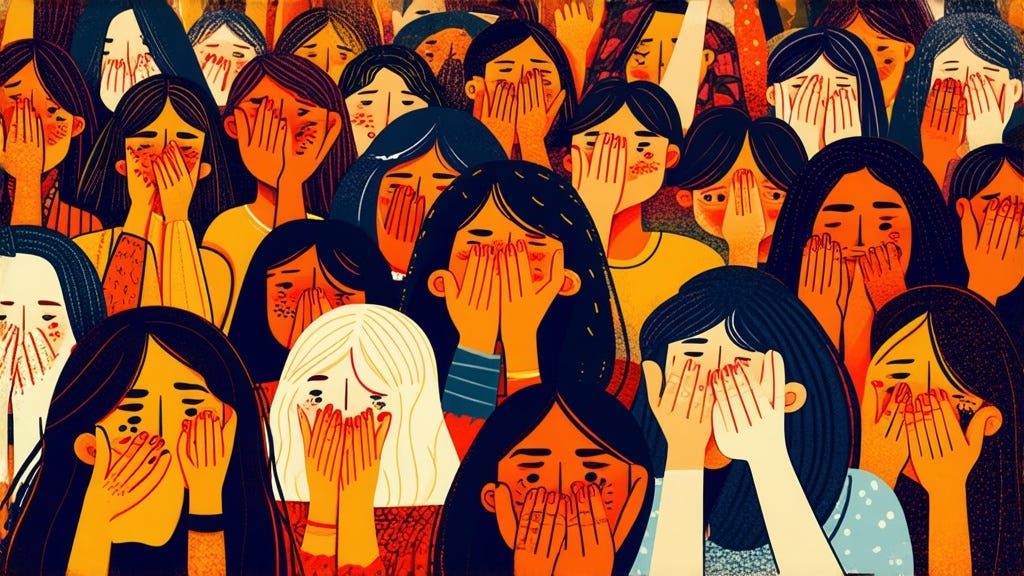After Liberal Cultural Hegemony
with the vibe shifted and the liberal commissars defanged, the purpose of angry communal judgement seems murkier than ever
I know I’ve brought this all up before, but I really do think these incidents were a time capsule of a very particular, very strange moment in elite American culture - you remember, I’m sure, the 2010s social justice YA novel freakouts. They were a niche issue, but like many niches this one helped explain broader and deeper conditions in the liberal conscience, in particular the addiction to always finding something new to get mad about, insisting that the trivial was actually the profound. A group of deranged Young Adult fans appointed themselves censors on social media and blogs and forums, using the unique amplifying powers of the social media era to put pressure on publishers and the book media. Leveraging the insane discursive conditions of the time, they bullied actual publishing companies into stopping the release of books deemed offensive, often before the books had even been released and often without the censors even having read them in their entirety. People have always tried to get art they don’t like pulled from the shelves. (Tipper Gore, a nation turns its lonely eyes to you.) What was so unusual, in the social justice era of the 2010s and early 2020s, is that so often, people in a position of authority listened.
What struck me about it then, and even more so now, is just how fundamentally confused the whole thing was, as a moral and political approach. Yes, “toxic” was exactly the right word for that whole ugly reality, and the people trying to (literally) cancel books they hadn’t read was ugly and stupid. That we had gotten to a place where Big Five publishers, among many other corporations, were so afraid of winding up on the wrong side of a social justice meltdown that they’d cave to such abuse was… unfortunate. (If you’re inclined to respond by pointing out that most of those books eventually got published, I would say that that didn’t make the process any less painful for the authors, and more importantly, that means the whole effort was a misguided failure.) But setting aside the issue of whether these meltdowns were good or fair or right, we’re still left with the basic question: what were people trying to accomplish? What was the point? What were the stakes? I mean, yes, they wanted to keep the books from getting published, and sometimes they succeeded, and they wanted to ruin the careers of the targeted authors, and once or twice, maybe they did. But still: what was it they were actually hoping to achieve, politically? Socially? Artistically? I’ve read an unhealthy amount about these controversies, and I have no idea.
Today, we stand in a moment that can fairly be described as the repudiation of the social justice moment that empowered these small bands of screaming censors. People try to deny that social justice overreach played a role in our current period of conservative froth, but I just don’t find those denials credible. Whatever the origins of this moment, it won’t last forever; the worm will turn again, as it inevitably does, no matter how many sneering X accounts insist otherwise. But for now, we have an ascendant quasi-conservatism that’s built on hatred of liberals rather than any affirmative agenda, while we still have a system of social justice surveillance, censure, and control that has been partially dismantled - but only partially. People still try to cancel. Adolescents still look into their front-facing cameras and make declarations not so much about what is wrong in the world but about who is wrong in the world, and they expect those declarations to be consequence-bearing. The steering committee of elite liberal culture, blue-check Twitter, has been disbanded, but its membership has fanned out across various networks and media and many among them still unthinkingly assume that their judgments have an implacable effect upon the world. We’re talking about a political movement that was/is built on the ideas that a) the world never stops failing to meet our moral standards and b) the correct response to that failure is to endlessly point it out, express disbelief and unhappiness at that fact, and assume that eventually some authority will correct the issue. It’s politics as waged by people who aren’t at all afraid to ask to speak to the moral universe’s manager.
There are generations of liberals who do not understand that a different kind of politics can exist, have no idea that judgment is only one part of politics and generally a rather minor one. Where do they go now? I’m sure many find that question uninteresting. I think it will prove in time to be very important. Because when American politics rolls over again, we will live with a new liberalism, or else we will live with the old.




